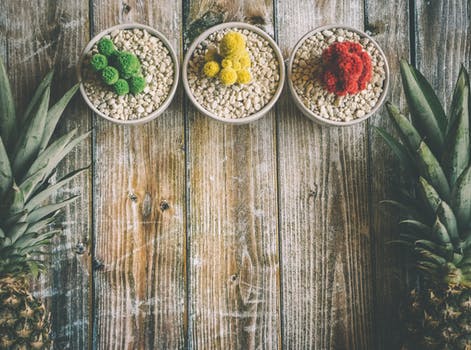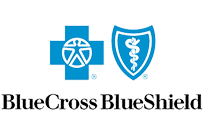When you’re abusing drugs and alcohol, eating well is not a top priority. Substance abuse can cause a suppressed appetite, so maybe you don’t feel like eating. And when you do eat, you may binge on sugary or processed foods. These eating patterns can have a lasting impact on your health that takes time to overcome. That’s why a critical part of the recovery process is restoring physical health. And a large part of that is addressing the poor nutritional effects of substance abuse. It’s easier to do the work of recovery when you’re feeling physically and mentally strong.

Nutrition Is Critical to Recovery
Repairing the damage of substance abuse on your body will help you feel better and stronger in your recovery journey. Research shows that:
- Poor nutrition is common in people with drug and alcohol addiction.
- Nutritional deficiencies due to alcohol and drug abuse can impact physical and mental health, making it harder to resist substances in recovery.
- Vitamin deficiencies can impact body composition and hormone regulation in addicted people.
There is a direct connection between chronic alcohol abuse and bad diet. Too much alcohol impacts nutritional intake, which can lead to more alcohol abuse. People struggling with alcohol addiction become more fixated on drinking and less interested in eating healthily (or even eating at all). Alcohol abuse can cause liver disease and permanently damage the:
- Pancreas
- Heart
- Brain
Substance abuse can also compromise your immune system. For example, too much alcohol can prevent you from metabolizing certain nutrients. About 70% to 80% of your immune cells are in the gut. Having a well-balanced diet can help prevent you from getting sick. Withdrawal symptoms like diarrhea and vomiting can dehydrate you and deplete your body of vital nutrients as well.
A carefully curated diet will help restore the nutrients you’re missing and repair damage to your body in recovery. A poor diet, on the other hand, can cause further damage.
How to Eat Healthy in Recovery
What you eat in recovery is important. The right foods and liquids can go a long way in rebuilding damaged organs and mending physical and mental health. The food you eat in recovery should be carefully chosen for nutritional content. A well-balanced diet that supports physical and mental health in recovery should include these essential nutrients:
- Complex carbohydrates help the brain produce serotonin, which can improve mood and sleep problems and decrease irritability and depression.
- Water helps your body absorb psychiatric or withdrawal medications and prevents dehydration symptoms like agitation and poor concentration.
- Omega 6 and Omega 3 fatty acids help neurotransmitter health. Neurotransmitters in your brain balance the brain chemicals that make you feel content, calm, and focused.
- Amino acids support the synthesis of dopamine in your brain, potentially decreasing aggression and your cravings for dopamine-centric drugs like opioids, methamphetamines, and cocaine.
- Healthy fats help heal cell membranes, reduce inflammation, and improve your mood.
- Polyunsaturated fatty acids help reduce anxiety, a common symptom in early recovery.
- Iron, folate, and vitamins B6 and B12 – Having too little of these nutrients can lead to poor sleep and tiredness, lack of focus, and depression.
How to Build a Well-Balanced Diet in Recovery
You should always check with your physician before making any dietary changes. You might also consider working with a dietician who specializes in nutrition for recovering addicts.
Good Foods for Recovery
Here are some examples of foods that include healthy nutrients that support physical and mental health because they contain the nutrients listed above:
- Grain-based cereals that are low in sugar
- Whole grains
- Salmon
- Trout
- Tuna
- Eggs
- Carrots
- Milk
- Cheese
- Beans
- Eggplant
- Artichokes
- Potatoes
- Leafy greens
- Lean meats
- Avocados
- Nuts
- Fruits
Foods to Avoid in Recovery
As much as you can, avoid foods that are processed or sugary like cookies, cakes, pastries, and other sweets, chips, microwavable dinners, fast food, soft drinks, white breads, and sausage. They may taste good, but these foods can delay physical healing in recovery. They have little to no nutritional value, and right now you need to focus on nutrient-rich foods to repair damage done by addiction and help prevent things like poor sleep and low mood, which can trigger a relapse. In addition to contributing to many health conditions, research suggests that sugar has some of the same addictive qualities as drugs of abuse. The same has been found for highly processed foods. Eat sweets and processed foods in moderation.
Use Cooking as a Recovery Tool
The creative process of cooking can be a great relapse-prevention tool. Cooking can serve as a source of inspiration and self-worth and help you from getting bored and turning to alcohol or drugs instead.
Cooking is also an opportunity to be social without using substances. The act of cooking and sharing a meal with others can help you learn how to develop and rebuild positive relationships with friends and family.
You may find yourself gravitating to the repetitiveness of certain cooking techniques and the structure of cooking in general. This can be a source of relaxation and validation, making the cooking process feel therapeutic.
Even baking can be therapeutic, bringing the body and mind to focus on something tangible and beneficial. Sharing your creations with friends can feel good as well.
Mindful Eating
You can also practice mindfulness around a healthy diet and nutrition, which is also helpful in recovery. Cooking brings you into the present moment. You need to be aware of what you’re doing, the right ingredients, and the environment around you. Paying attention to the smells, sounds, touch, and tastes involved in preparing food can be a form of mindfulness. You can also do this with eating your food. Can you taste the different ingredients? What does it smell like? Chew slowly, take your time, and savor your meal.
A Sense of Responsibility
There is a sense of responsibility that comes with preparing your own food. For some people, cooking helps them develop a greater sense of obligation to look after themselves and care for others. Even when cooking experiments don’t go quite as planned, learning from the experience and practicing flexibility can improve self-esteem and build your confidence. All of this fosters an atmosphere of positive mental health, keeping the threat of relapse at bay.
Relationships with loved ones are often strained from addiction. Cooking with people you care about can build bonds and become a source of learning and growth for everyone. Cooking helps promote a healthy diet and lifestyle, and positive behaviors. People in recovery with poor dietary habits have a higher chance of relapse than those who make long-lasting positive changes in their eating habits. A healthy diet supports long-term recovery and overall well-being. Eating a healthy diet may sound like a lot of work at first, but with time and practice, it will become second nature to you.
- https://www.sciencedirect.com/science/article/abs/pii/S0376871617303915#:~:text=People%20suffering%20from%20substance%20use%20disorders%20may%20be,ability%20to%20access%20nutrients%20%28Egerer%20et%20al.%2C%202005%29.
- https://pubs.niaaa.nih.gov/publications/aa22.htm
- https://www.ncbi.nlm.nih.gov/pmc/articles/PMC4919915/
- https://pubmed.ncbi.nlm.nih.gov/10564096/
- https://www.todaysdietitian.com/pdf/courses/SalzSubstanceAbuse.pdf
- https://www.drugabuse.gov/about-nida/noras-blog/2020/03/connections-between-sleep-substance-use-disorders
- https://www.researchgate.net/publication/314536176_A_study_of_depression_among_patients_of_substance_use_disorder
- https://pubmed.ncbi.nlm.nih.gov/28835408/
- https://news.umich.edu/highly-processed-foods-linked-to-addictive-eating/
- https://www.nydailynews.com/life-style/cooking-therapy-making-meals-helps-reduce-stress-heal-broken-heart-benefits-article-1.206839
- https://www.medicaldaily.com/treating-depression-kitchen-cooking-baking-classes-can-double-therapy-313792
Questions about treatment options?
Our admissions team is available 24/7 to listen to your story and help you get started with the next steps.












